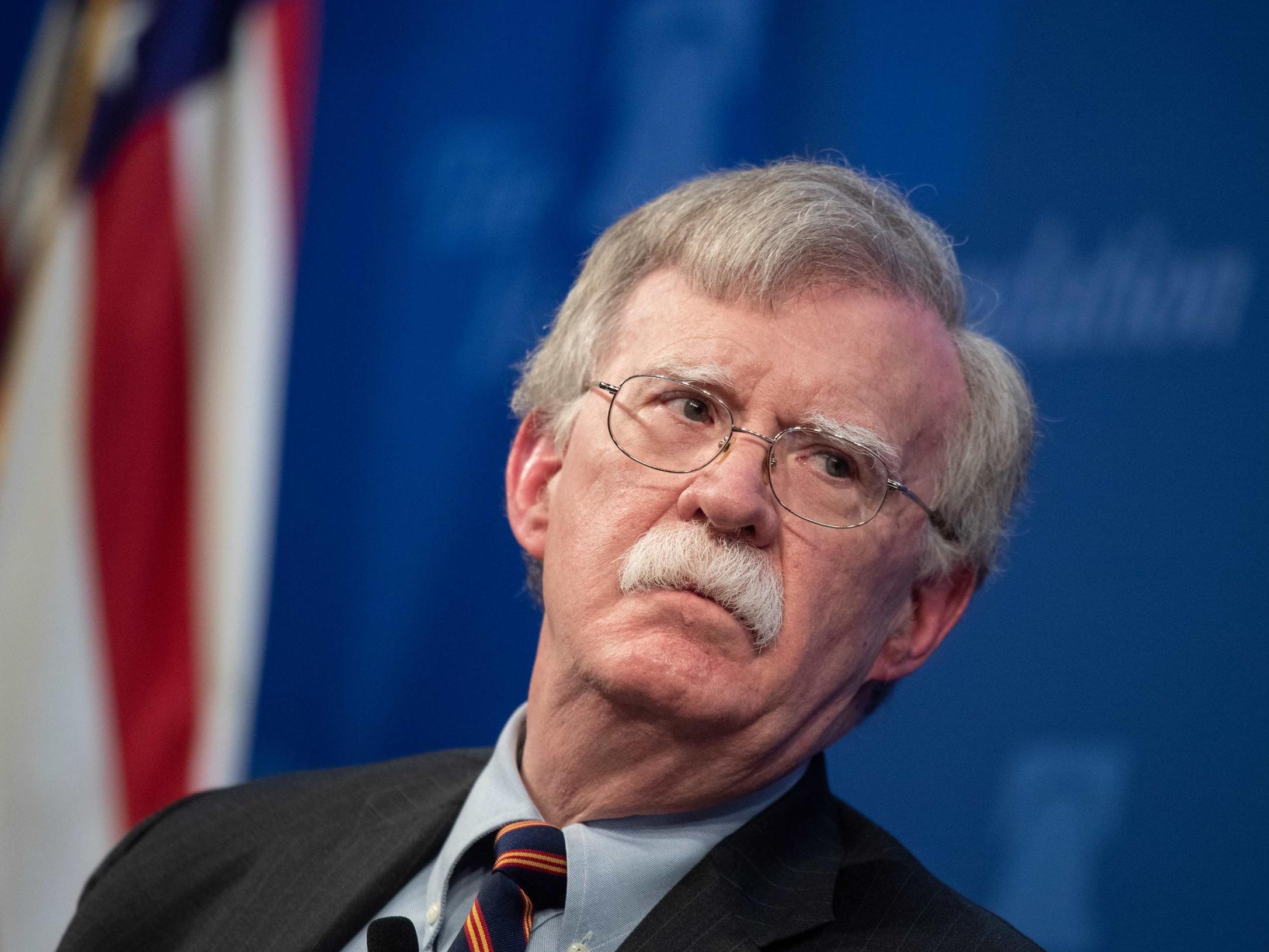Turkey rejects Trump adviser John Bolton's Syria plan, insisting it will fight Kurdish militia
‘John Bolton made a serious mistake on this issue. Whoever thinks like that is making a mistake,’ says Recep Tayyip Erdogan
Your support helps us to tell the story
From reproductive rights to climate change to Big Tech, The Independent is on the ground when the story is developing. Whether it's investigating the financials of Elon Musk's pro-Trump PAC or producing our latest documentary, 'The A Word', which shines a light on the American women fighting for reproductive rights, we know how important it is to parse out the facts from the messaging.
At such a critical moment in US history, we need reporters on the ground. Your donation allows us to keep sending journalists to speak to both sides of the story.
The Independent is trusted by Americans across the entire political spectrum. And unlike many other quality news outlets, we choose not to lock Americans out of our reporting and analysis with paywalls. We believe quality journalism should be available to everyone, paid for by those who can afford it.
Your support makes all the difference.Hardline White House national security adviser John Bolton’s last-ditch attempt to secure his faction’s goals for a planned US withdrawal from Syria appeared to go down in flames on Tuesday as Turkey’s president rejected any protection for the Washington-allied Kurdish militia, and even refused to meet with the firebrand conservative.
Instead, President Recep Tayyip Erdogan took to the floor of parliament in Ankara, announcing that Turkish armed forces had “mostly completed our preparations for a military offensive against” Isis elements in Syria as per an agreement with US president Donald Trump forged last month.
“Likewise, we are determined to take our steps against terror organisations such as the PYD/YPG [Kurdish People’s Democratic Union and its allied militia and political organisation in Syria] along with Daesh [Isis],” he said. “We will act to neutralise those terror organisations in Syria very soon.”
Mr Bolton, a Washington fixture known for his hawkish foreign policy positions, arrived in Ankara with his own travelling press in an apparent attempt to convince Turkey to avoid attacking Syrian Kurds. He has also demanded that any US withdrawal be conditioned on Iranian-backed forces leaving Syria, and steps put in place for the political change in Damascus.
Instead, Mr Bolton left Ankara without even meeting Mr Erdogan, who was cited by the pro-government Daily Sabah newspaper as insisting “his busy schedule prevented him from meeting” Mr Bolton, whose public positions have contradicted those of his boss and US secretary of state Mike Pompeo, who is also visiting the Middle East.

Mr Bolton and anti-Isis envoy Jim Jeffrey, arriving after a visit to Israel, met privately with Mr Erdogan’s senior adviser Ibrahim Kalin, who helped organise a 14 December phone call in which Mr Trump agreed to withdraw 2,000 or more US troops from Syria and hand control of anti-Isis efforts to Turkey.
Meanwhile, Mr Erdogan publicly hammered Mr Bolton.
“It is not possible for us to accept and swallow the message that Bolton gave from Israel,” he told lawmakers. Turkey, along with most independent analysts and US intelligence agencies, considers the YPG inseparable from the Kurdistan Workers Party, or PKK, an outlawed separatist organisation deemed a terrorist group by Ankara, the US and Europe.
It is not possible for us to accept and swallow the message that Bolton gave from Israel
“If the US evaluates them as ‘Kurdish brothers’ then they are in a serious delusion,” Mr Erdogan said, in a televised speech interrupted by chants of “allahu akbar”, or God is great, by supporters. “John Bolton made a serious mistake on this issue. Whoever thinks like that is making a mistake.”
Many have voiced doubt over Turkey’s ability to fight Isis in Syria without continuing US air and intelligence support. But in a New York Times opinion piece published on Monday, Mr Erdogan spelt out Turkey’s plans for Isis-controlled Syria, noting that Turkish troops and allied local fighters left northern Syrian towns they liberated from extremists in far better shape than the US aerial bombardments that destroyed Raqqa and Mosul in their efforts to dislodge the jihadi group in 2017 and 2018.
“Turkish troops and fighters of the Free Syrian Army went door to door to root out insurgents,” Mr Erdogan wrote. “Our approach left the city’s core infrastructure largely intact and made it possible for life to return to normal within days.”
Turkey and its allies already control a number of cities in northern Syria. Mr Erdogan proposed creating the same types of “stabilisation” forces used in those towns, along with popularly elected local councils, advised by Turkish officials. “Turkey is volunteering to shoulder this heavy burden at a critical time in history,” he said.
Turkish efforts to bring stability to Arab and ethnic Turkmen stretches of northern Syria have been successful, even drawing back tens of thousands of refugees.
But its track record is more troubled in the ethnic Kurdish-dominated Afrin, where human rights organisations and witnesses have described a smouldering insurgency by Kurdish militants and kidnappings for ransom at the hands of Ankara’s own Syrian rebel allies.

Join our commenting forum
Join thought-provoking conversations, follow other Independent readers and see their replies
Comments